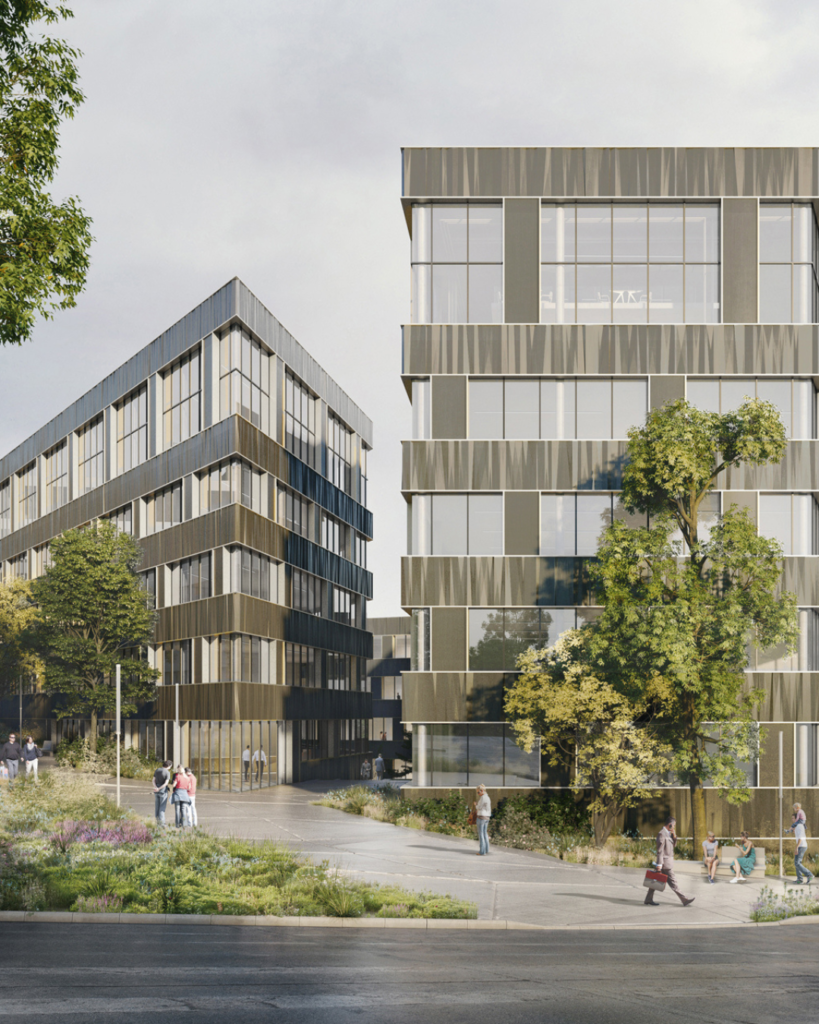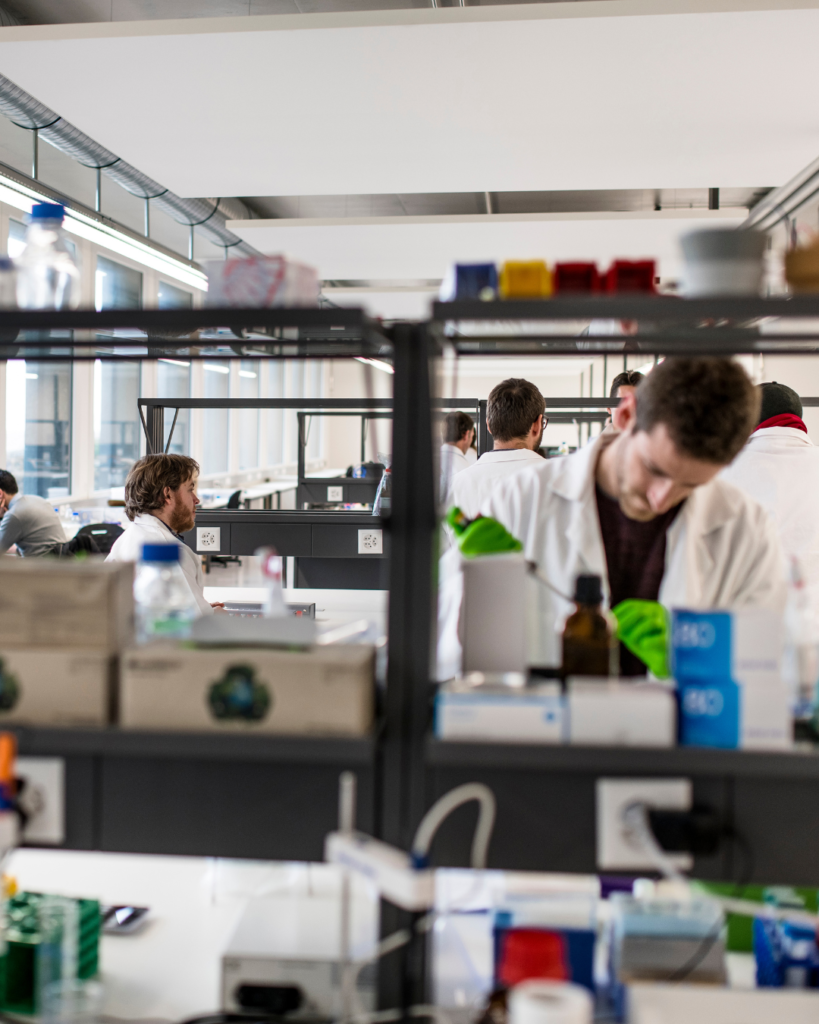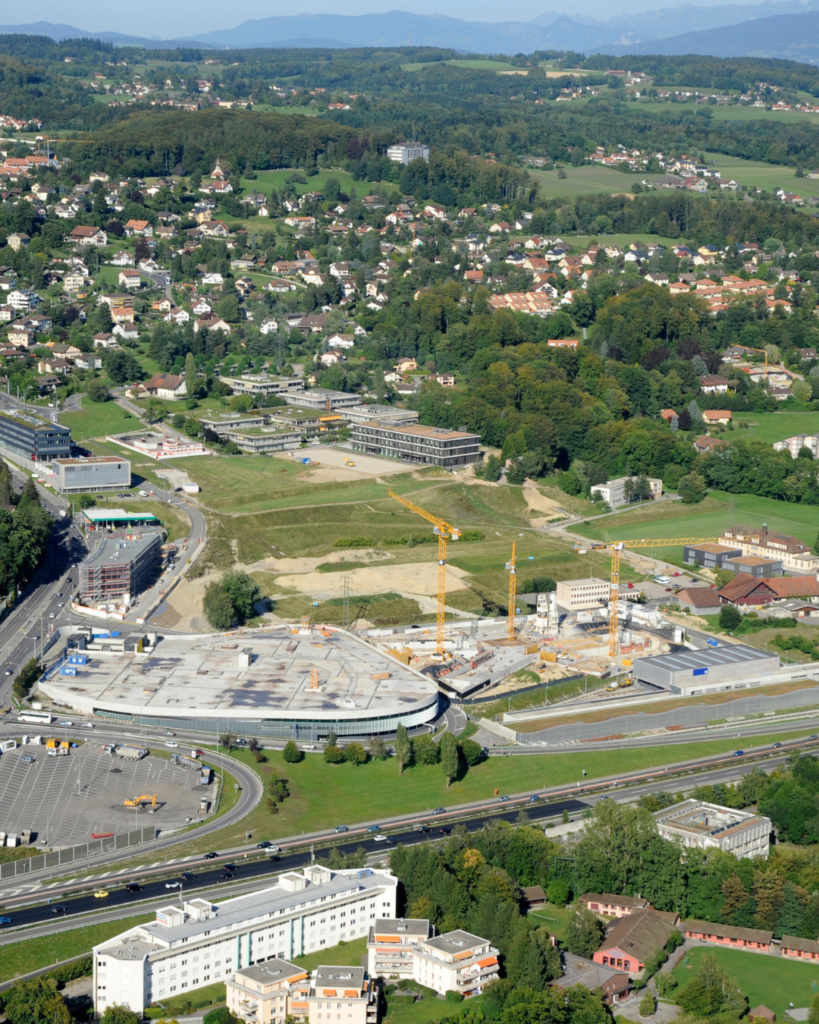CONSOLIDATION AND GROWTH
In 2020, the Serine building was completed, bringing Biopôle’s total constructed surface area to around 54,000 m2. In the same year, ADC Therapeutics joined NASDAQ, Biopôle SA announced our first corporate partners – CSL Behring and Clinique La Prairie – and Nouria Hernandez was appointed President of Biopôle SA’s Board of Directors.
The next year, in 2021, we introduced the Biopôle Start-up Fund with a total of CHF 500,000 in funding per year. Meanwhile, Superlab Suisse SA launched its first branch on campus and Ferring Pharmaceuticals opened the Ferring Biologics Innovation Centre. In the same year, Bristol Myers Squibb and the Swiss Medical Network also became Biopôle SA corporate partners, and we launched the Vanguard Accelerator programme for digital health-oriented projects.
In 2023, both StartLab and the Digital Health Hub (DH2) moved to bigger spaces, Roche Diagnostics and CSL Behring set up offices on campus, and several large corporations, including Novartis, Roche and BMS, became Biopôle corporate partners. In September, the Leucine building was also completed.
Today, the campus includes more than 150 life sciences companies and 25 service-oriented companies, with a total of 2,700 residents.




